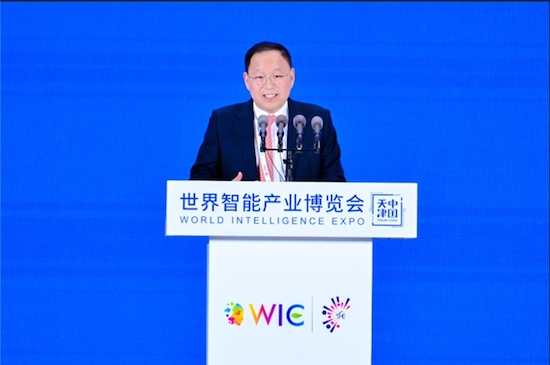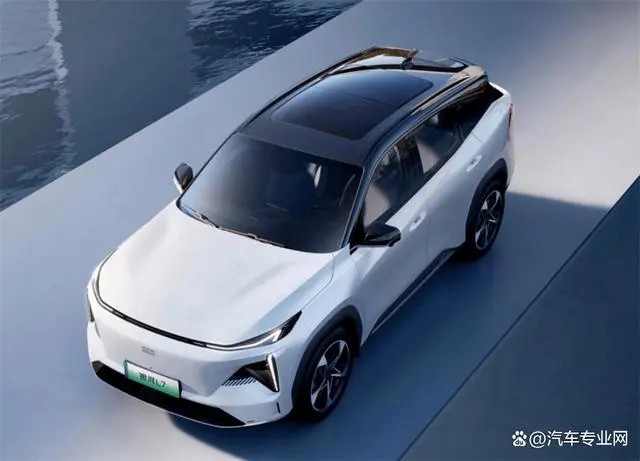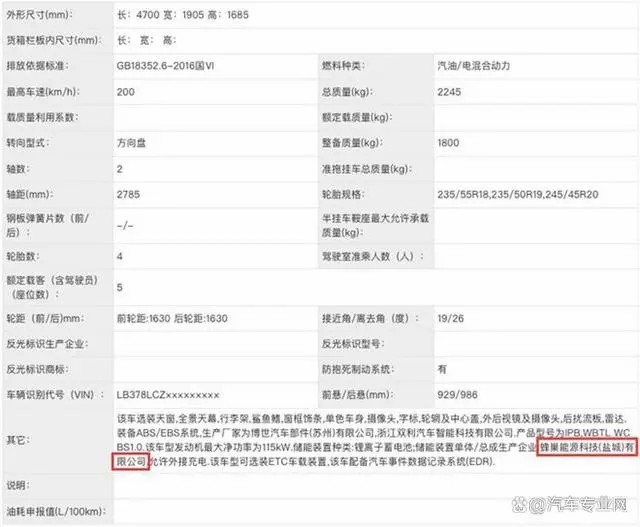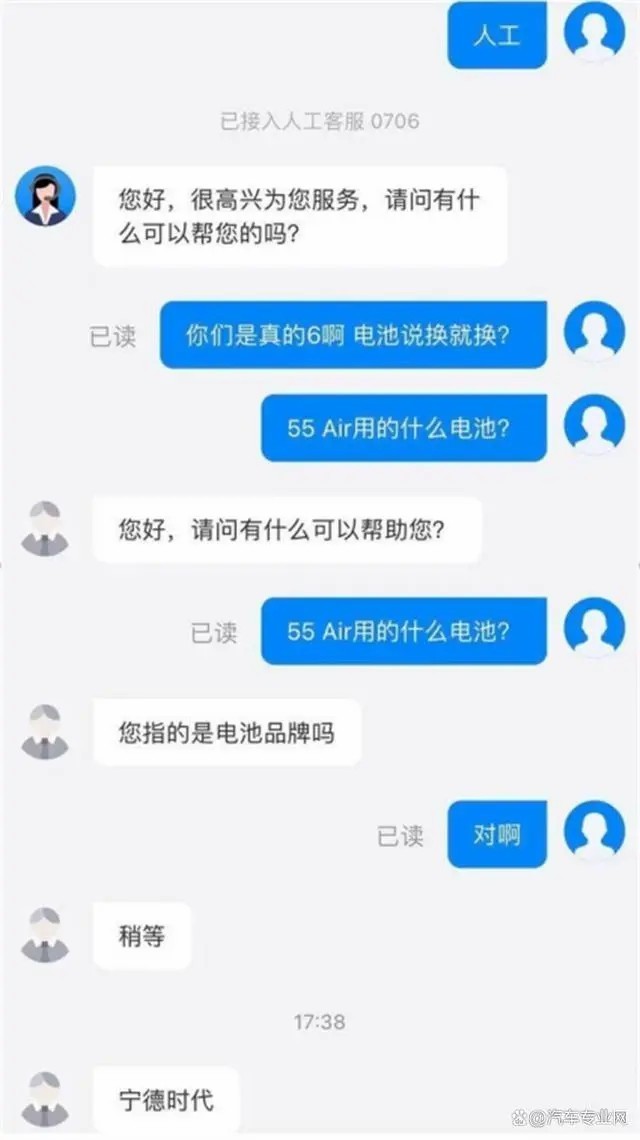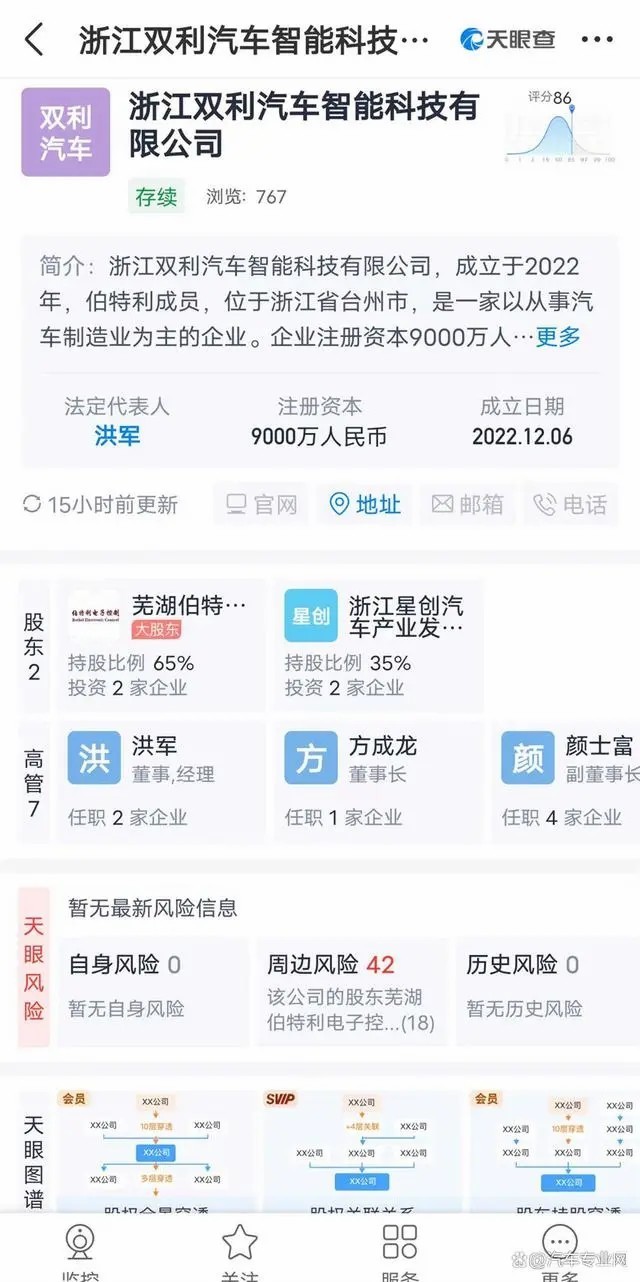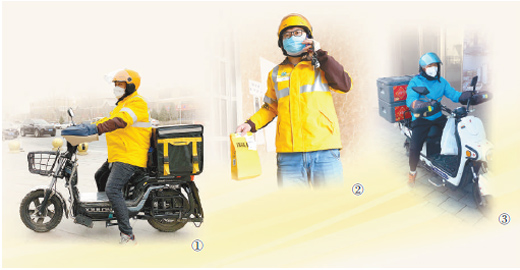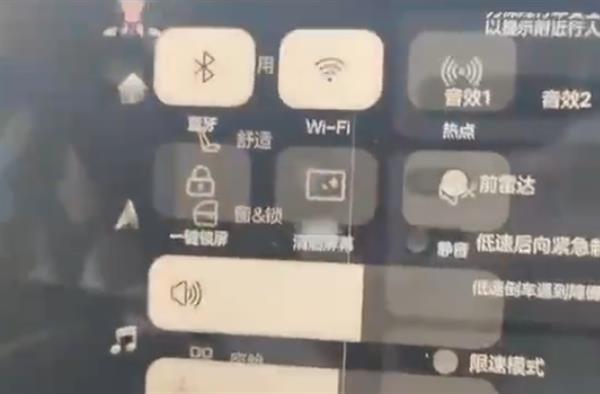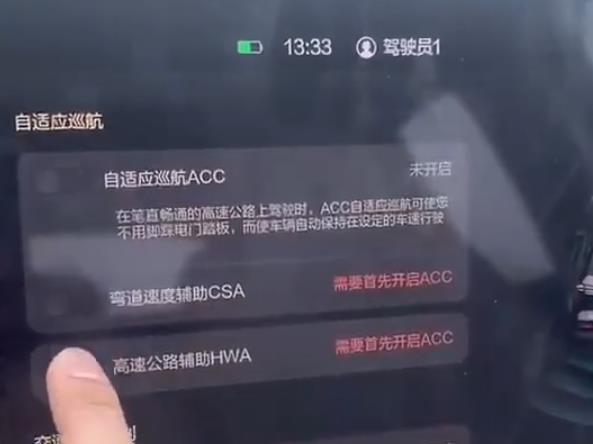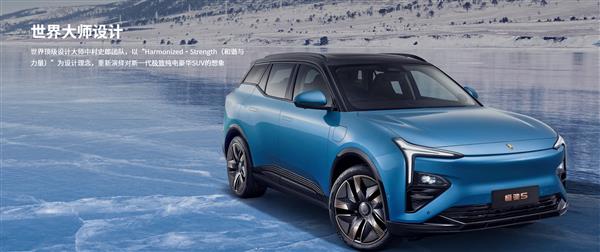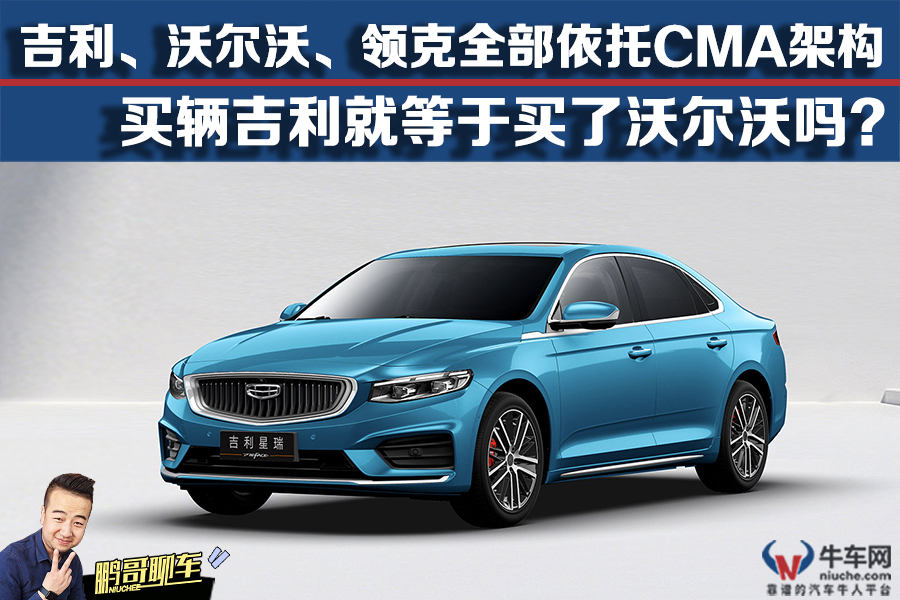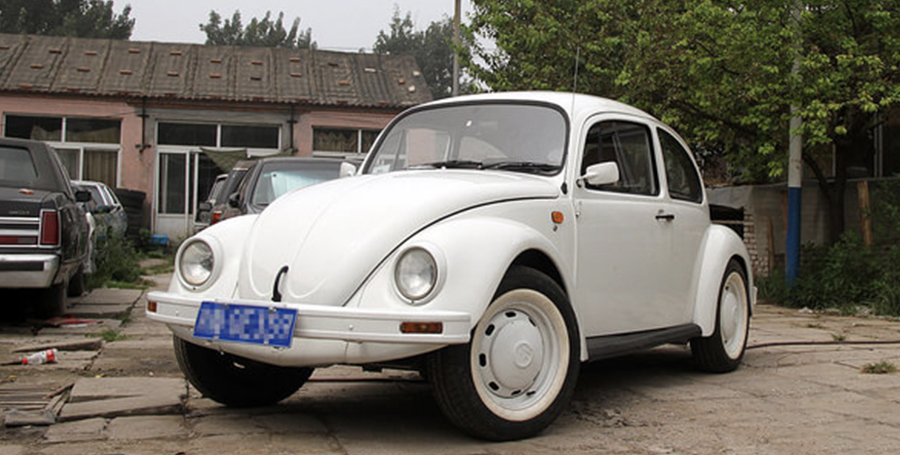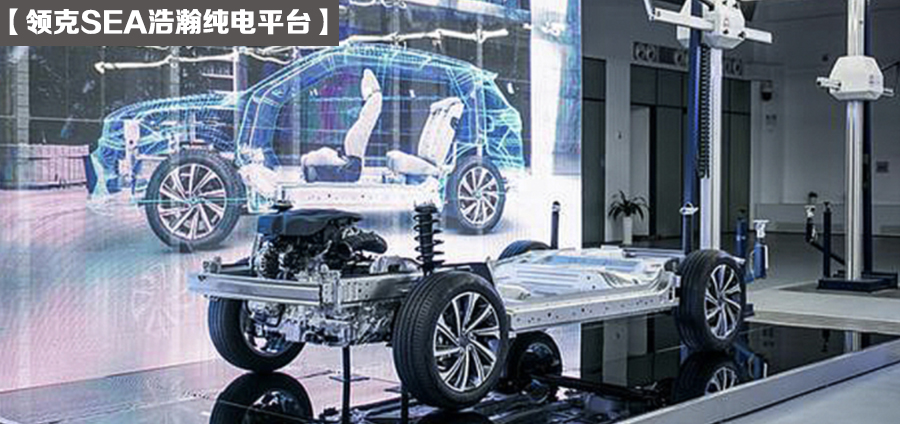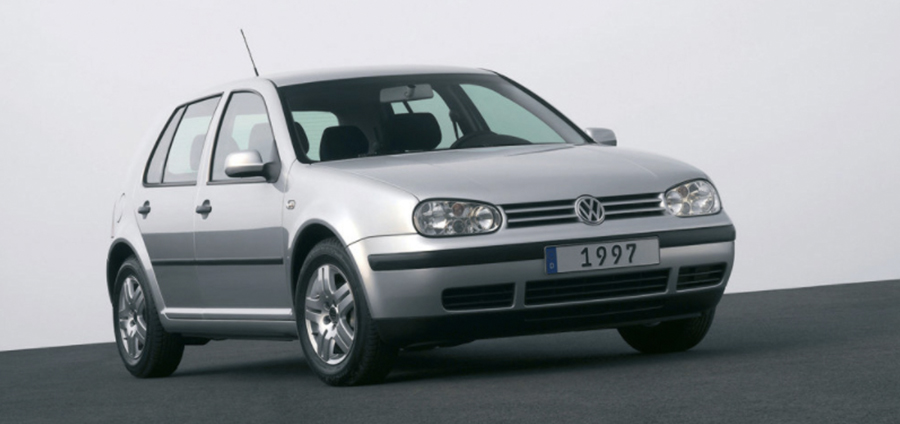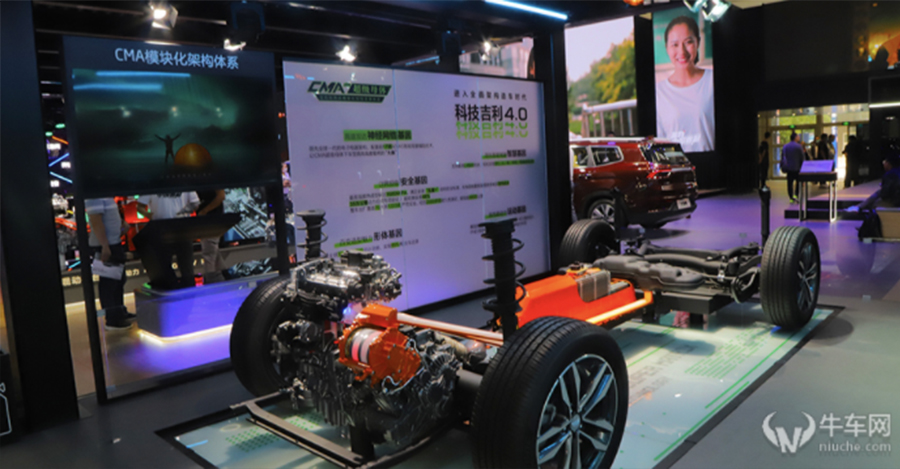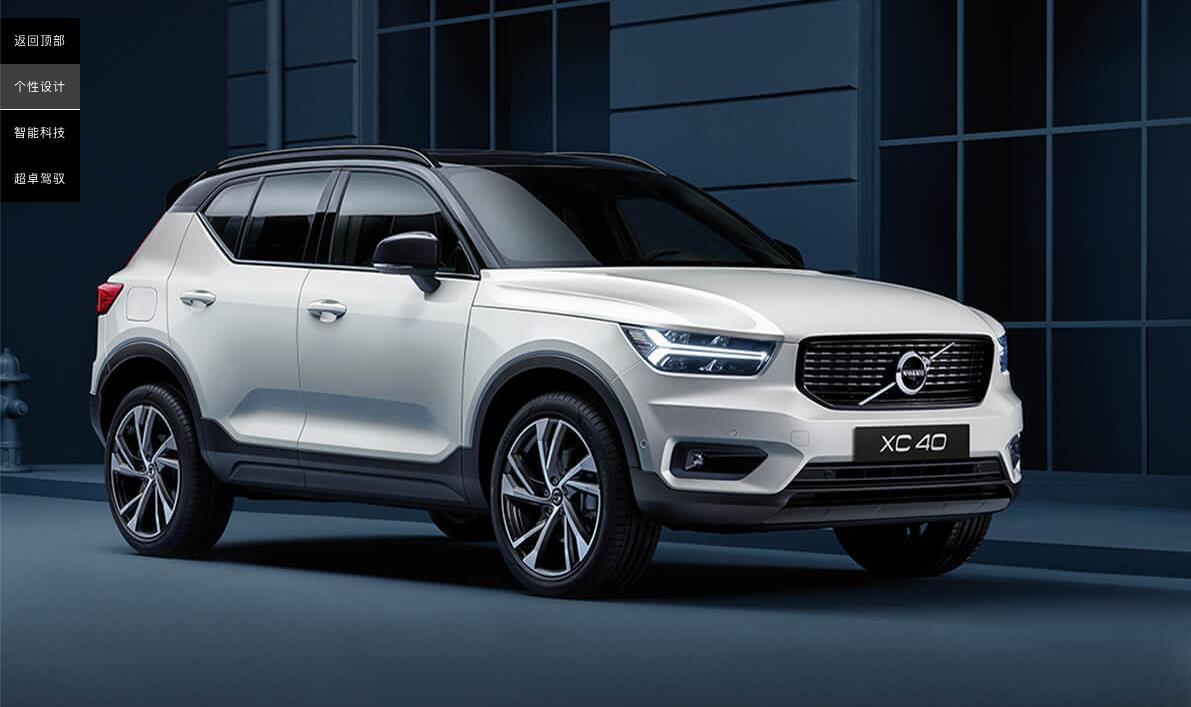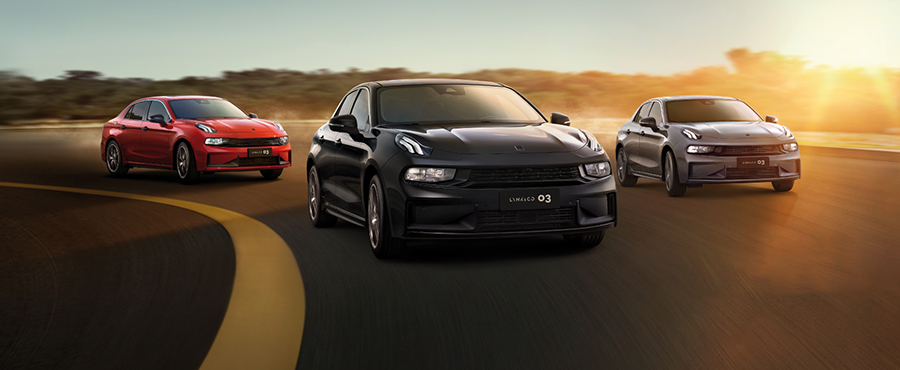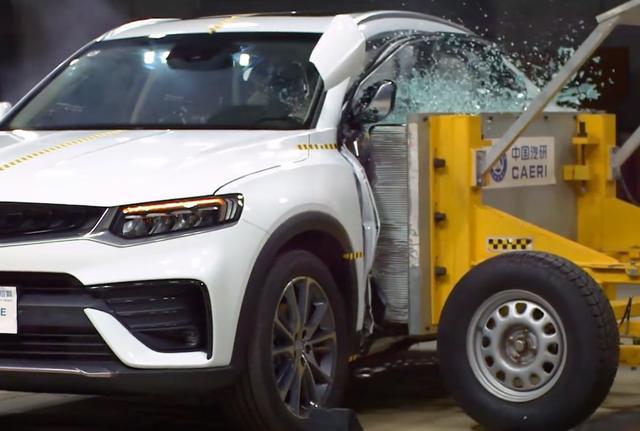Reference News Network reported on March 1,According to foreign media, Volvo Cars, a luxury car manufacturer acquired by China auto giants in 2010, has been reborn. From January to December 2015, the global sales volume exceeded 500,000 units for the first time, and the operating profit more than tripled over the previous year. Volvo also plans to upgrade all its models by 2018, and China’s funds seem to have brought it a virtuous circle. On the other hand, the goal of "achieving sales of 800,000 units by 2020" has also surfaced.
According to "Nihon Keizai Shimbun" reported on February 29th, "The station wagon is Volvo’s most competitive model." Hanken samuelson, President and CEO of Volvo Cars, said at the Volvo showroom in Stockholm on the 18th.The press conference on the annual final accounts and the launch conference of the V90 station wagon will be held here. After the best-selling SUV)XC90 and the flagship model S90 last year, the V90 will be the finale.
According to the report, samuelson looks very satisfied. Last year, not only the European market recovered, but also the depressed American market improved. Volvo ranks fifth in the world in the field of advanced automobiles, ranking behind the three major German manufacturers such as BMW and Toyota.
Volvo decided to produce locally in the United States last year, and added 2,000 R&D and design teams in Sweden. Samuelson has always advocated that Sweden should take the lead in R&D and design. It was once rumored that its parent company — — Zhejiang Geely Holding Group was dissatisfied with Volvo’s design, but in the end Geely did not intervene excessively. As an independent car department from Volvo Group, Volvo Cars will change owners almost every 10 years. In 1999, it was owned by Ford Motor Company of the United States, and in 2010, it was acquired by Geely. Some employees said that the degree of freedom under Geely is greater than that under Ford. "With Volvo’s rebirth, the city is thriving," said a senior executive of SKF, a bearing giant also headquartered in Gothenburg, Sweden.
According to the report, in 2016, Volvo’s flagship models at all levels will all debut. The profit margin is already high, and the unified standard of parts and components will also bring results. It is expected that the income will continue to increase in 2016, setting a new record. Samuelson said ambitiously that all models will be upgraded before 2018.
The production platform will also be unified. Starting from 2017, the second small and medium-sized car production platform will be put into production, which will unify the standards with Geely’s models, aiming at laying the foundation for the "800,000-unit era".
The uniqueness of Volvo cars is that they have never taken the usual road. In addition to joining online shopping, the auto show has been concentrated in Geneva, Detroit and China (Beijing and Shanghai) since last year. The company’s management said, "At the auto show, reporters ran between booths, and they couldn’t compete with the three local manufacturers in Frankfurt. It is better to choose an occasion where they can introduce new cars and technologies carefully." At the press conference on the 18th, the management also arranged one-on-one interview time for the media applying for interviews.
According to the report, Volvo is also facing some problems. Its profit margin last year was 4%, which is still far from the 10% of the Big Three in Germany. Due to the introduction of new production platforms, it is expected to reduce development costs and increase profits in the future, but the investment in electrification such as electric vehicles has just started. In 2015, the R&D investment was SEK 8.8 billion, an increase of more than 20%. At the same time, we are still exploring cooperation with other companies.
An increase of 300,000 units in five years is a considerable step. Samuelson said that he would increase all kinds of software and talents in the future, but I’m afraid the front line is too long and there may be logistics problems. It is also very important to keep Volvo unique.
The company also aims at "no one will be killed or injured by driving or riding Volvo cars by 2020", not only pursuing expansion. From 2017, Volvo will carry out autonomous driving experiments around the head office, also to achieve the goal of "zero casualties".
According to the report, "safety brand" is one of Volvo’s selling points. Whether Volvo can keep this concept and make it the core of cohesion will be tested. (Compile/Yang Ting)
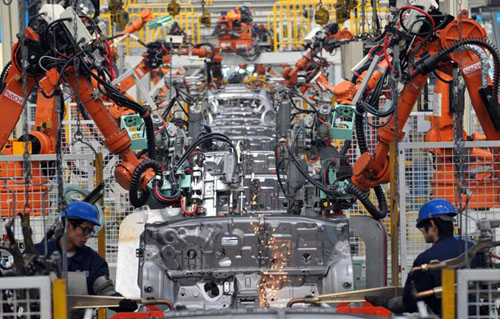
[Further reading] Foreign media: Volvo Cars, a subsidiary of Geely, expects a record revenue in 2016.
Reference News Network reported on February 18,According to foreign media, Volvo Cars predicts that its revenue will reach a record this year and its profit will also increase. The company has achieved strong growth in the European and American markets before, and its operating profit tripled in 2015.
According to Reuters’s report on February 18th, the company announced that its operating profit for the whole year of 2015 increased from 2.13 billion Swedish kronor (about 1.63 billion RMB) in the previous year to 6.62 billion kronor (5.08 billion RMB). Zhejiang Geely Holding Group acquired Volvo from Ford Motor Company in 2010.
Volvo is carrying out an investment project of 75 billion kronor (about 57.5 billion RMB), and plans to launch a series of new models and establish a number of factories, so as to gain a foothold in the high-end market. At present, this market is dominated by German heavyweights such as Daimler’s Mercedes-Benz and BMW.
Due to the brisk sales of the new XC90 SUV, the revenue increased in 2015, and the impact of the slowdown in China market was overshadowed by the growth of other markets.
In a statement, Volvo said that all major markets, including China, Europe and the United States, are expected to grow, supporting the company to record record revenue for the third consecutive year in 2016. In terms of revenue and number of employees, the company is one of the largest enterprises in Sweden.
(2016-02-18 16:45:30)
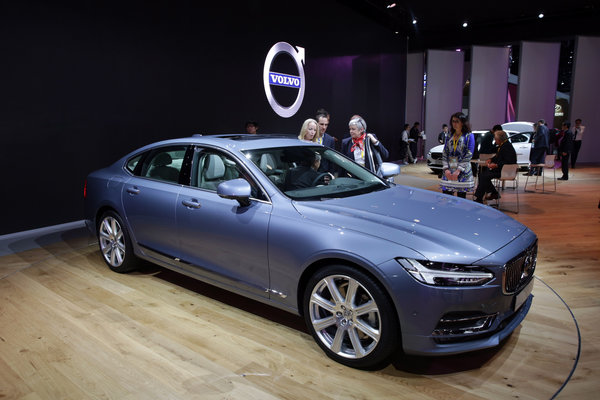
The reference news network reported on January 15.According to foreign media, the American auto industry has set a sales record, which has brought a lot of income to the largest auto manufacturers. They put money into research and development of new models, which will be displayed at the annual North American International Auto Show.
According to the The New York Times website reported on January 14th, however, even the smallest car companies are booming in the prosperous American market, especially Volvo, a niche luxury brand owned by China and operated by Sweden.
General Motors, Ford Motor Company and other brands held luxurious press conferences, while Volvo displayed the new car S90, and its flagship sport utility vehicle XC90 also won the Best New Truck Award in 2015.
According to the report, this shows that even the smallest car companies can succeed when demand soars. Volvo has only a 0.3% share in the US market.
During the financial crisis in 2010, Ford sold Volvo to China Geely Automobile Group as part of spending cuts. With a new owner, Volvo continues to expand. Geely’s goals include building Volvo’s first factory in North America.
According to the report of research company Autodata, the total sales volume of the US auto market increased by 6% year-on-year, while the sales volume of Volvo soared by 24% to 70,000 vehicles.
"We have always attached great importance to the development in the American market," said HakanSamuelsson, CEO and president of Volvo. "So we decided to show S90 publicly for the first time at the Detroit Auto Show and start building a Volvo factory here."
Other small brands that have benefited from the surge in consumer demand include Subaru, a Japanese car manufacturer, and LandRover, a British SUV manufacturer. The former reported a 13% increase in sales, while the sales of Land Rover brand owned by India’s Tata Motors increased by 37%.
"These brands and their new owners have made progress and really started to flourish," said MattDegen, senior editor of Kelley BlueBook, a car research company. "Volvo took longer, but we saw that it had a new idea of itself and it really started to run well."
According to the report, after being owned by Geely, Volvo emphasized the brand’s long-standing reputation in safety and quality, as well as its unique Swedish style.
Geely can promote the development of Volvo while maintaining these characteristics, and prevent it from disappearing from the market like brands such as Saturn and Mercury.
Samuelson said that the best-selling Volvo XC90 trucks and S90 cars have brought new impetus to the company’s transformation and return to its core values.
The S90 four-door coupe released on the north american auto show will go on sale this summer, with a starting price of around 47,000 US dollars (about 310,000 RMB).
The company’s new goal has brought another development achievement: Volvo invested 500 million US dollars to break ground on the first automobile manufacturing plant in North America. The factory, located in Richville, South Carolina, will produce the next generation S60 sedan and plans to employ 2,000 employees in the next decade.
It will allow Volvo to operate in three major markets — — Asia, Europe and the United States — — Have a production base.
"This shift is quite remarkable," said JessicaCaldwell, a senior auto analyst in Edmunds.com. "The combination of new design and function makes this brand more attractive."
According to the report, automobile manufacturers have introduced technologies that can improve safety, and Volvo has joined the ranks to regain its reputation of paying attention to safety. Volvo, which has the latest technology, has made a clear goal, that is, to realize its products without fatal or serious injury accidents by 2020.
"Volvo once dominated the security field," Caldwell said. "They gave up this strategy about ten years ago. Today, they are emphasizing security elements again, but they have become more mainstream and less weird. "
Volvo said that among other features, S90′ s safety technology will be able to detect pedestrians, cyclists and large animals.
According to the report, the car also provides some new autonomous functions, such as high-speed steering assist function and automatic maintenance of the set speed or distance from the vehicle in front. It will have a gasoline version and a hybrid version.
Geely handed over the management of Volvo to Swedish executives and provided it with a lot of money needed to develop new cars and technologies.
Degen said, "We are now seeing the investment results."
By 2020, Volvo will complete the upgrading of all product lines and occupy a better position to compete with global competitors. Autopilot technology will become the focus. Volvo also plans to develop the first pure electric vehicle and implement the global small car strategy.
This is very different from the situation in 2009. At that time, Ford didn’t even find a buyer who was willing to buy this depressed car company. "They have survived the lowest point and made great progress," Caldwell said. "At that time, I didn’t know whether the company could continue to go on."
[Further reading] Volvo Group calls for contributing to the sustainable development of cities in the future.
China Economic Net, Beijing, October 14 (Reporter Zhu Lin) Yesterday, Volvo Group released a white paper on sustainable transportation at the Leaders’ Forum on "Towards a Sustainable City" jointly organized with FT Chinese Network.
Chen Ranfeng, president of Volvo Group in China, said that China is in a period of rapid urban expansion, and the problems it faces are enormous challenges, which also provide excellent opportunities for change. As a leader in the field of transportation, Volvo Group has always attached great importance to China, and has made many efforts and attempts in the field of sustainable transportation for a long time, and has also achieved certain technical achievements. We hope that this white paper will provide a reference for policy makers in China and contribute to the future sustainable development of the city.
According to reports, based on the national conditions of China, the white paper objectively analyzes the future urban population growth situation in China, as well as the new ideas of energy conservation and emission reduction policies and overall urban planning issued by the China government. According to the white paper, traffic congestion, road safety, energy consumption and environmental pollution are the main problems facing urban traffic in China. Focusing on the above problems, the white paper expounds a series of feasible solutions based on the concept of improving transportation efficiency, ensuring road safety, saving energy and protecting the environment, and combining the successful practice of Volvo Group in many countries around the world. The white paper calls for active and extensive cooperation among industries, academia and policy makers, supports the development and application of new technologies, and jointly provides intelligent and efficient solutions for the sustainable development of cities and transportation.
Chen Ranfeng said at the forum, "The sustainable development of a city has rich connotations. It is a comprehensive problem of how to balance various interests such as resource development and utilization, economic development and environmental protection, which requires the joint participation and efforts of all sectors of society. Volvo Group held this event together with FT Chinese Network ‘ A city moving towards sustainable development ’ The Leaders Forum is to build an open public discussion platform for how to realize the sustainable development of the city. "
The forum revolves around "new energy, new traffic" and "‘ Internet plus & rsquo; Intelligent Transportation under the WTO ",experts and scholars from industry, academia and research circles, business elites, and representatives from relevant government departments, held a heated discussion on how to achieve future urban economic growth while reducing energy consumption, how new energy vehicles can occupy a larger market, and how the transportation industry can use the Internet platform to innovate business models and operating mechanisms, providing new thinking and new perspectives for sustainable transportation and future urban development.
(2015-10-14 16:10:01)
[Further reading] Volvo Micheal Ning asked the technology company: Is it really capable of building a car?
Phoenix Technology News On August 16th, the 2015 Phoenix LINK+ Conference hosted by Phoenix Technology and Phoenix News Client was held in China Film Director Center today. With the theme of "Remodeling Connections", this conference discussed the role and reaction of the Internet to traditional industries. Micheal Ning, vice president of corporate communication in China, an automobile group, shared in the forum that technology companies are actually serving automobile companies.
Understanding of connection and integration: zero casualties and zero emissions
When the car enters the era of intelligent transportation, it needs to be people-oriented, that is, safer and more free. For Volvo, it is to achieve zero casualties and zero emissions in the future. "In the era of convergence of Internet and mobile Internet, our society will enter the era of intelligent transportation. In this process, cars will go from industrial chain to use to insurance, and the whole industry will realize zero casualties and zero emissions proposed by Volvo in the future." Micheal Ning said.
The core factor of Volvo’s promotion of the driverless era
"When people-oriented values are paid more and more attention, the safety of high-tech products is paid more attention." Micheal Ning mentioned, "Based on respect for life, Volvo will enter the unmanned field faster than other companies, including how to promote this technology faster."
Do technology companies really have the strength to build cars? Technology companies are actually serving car companies.
"The media is good, and the public is good. Many people think that there is no advantage for auto companies to engage in mobile internet, but they are actually wrong. Car companies like Volvo have laid out things like this with partners 10 years ago. " Micheal Ning mentioned, "If Internet companies say that they want to transform cars, the car company will play: Thank you, you just work for me."
Explore the possibility of "connection" between drones and cars in the future.
Finally, regarding the possibility of connection between cars and drones, Micheal Ning thinks that the imagination of the future transportation industry is huge. Cars and drones can also take off together in the future.
The following is the full text of the forum speech:
Cheng Li:Next, please welcome three guests to the stage.
Mr. Chang Gang, Chief Marketing Officer of Ericsson China, Micheal Ning, Vice President of Communication in China District of Volvo Locomotive Group, and Mr. Xiong Yifang, Co-founder of Yihang.
I’m Cheng Li, the founder of Cheyun.com, an automotive technology media in China. I’m very grateful to Phoenix.com for inviting me to host this session. Today, I’m very excited. We’ve been talking about the transformation of automobile transportation and the arrival of the intelligent era. The first question, just now, always talked about connection and integration. Can the three of you simply share with us your understanding of connection and integration?
Chang Gang:Combined with the drone mentioned by Mr. Xiong just now, there is a scene that can show the integration we are talking about. We often encounter traffic accidents on the road, and we need to wait until the traffic police and the insurance company arrive at the scene to move the car and make the traffic smooth. In the future, the endurance of drones, especially in combination with the ubiquitous network capabilities provided by ICT, in such a scenario, perhaps the Traffic Management Bureau will send a drone, and the insurance company can also go to the scene to collect evidence for drones. Recognition can integrate ICT capabilities, drone capabilities and background support management capabilities, which will greatly improve traffic safety and efficiency.
Xiong Yifang:I think connection and convergence are very new words for the UAV industry, because the industry is currently in a very early stage. It is a wild black belt era. The so-called connection and integration should be on-line 24 hours a day, and not only the owner of the drone is monitored, but also it should be regulated from the perspective of security and privacy.
In the future, it will be a very important foundation for unmanned aerial vehicles to be online 24 hours. On this basis, an aerial Internet will be established between people and planes, between planes and between people.
Micheal Ning:In fact, we have entered a new era, the era of the integration of Internet and mobile Internet. This era has entered an era of intelligent transportation, which can truly be people-oriented, and transportation will be safer and more free in the future. In this process, from the industrial chain to the use of automobiles to the future insurance, the whole industry will realize zero casualties and zero emissions proposed by Volvo in the future.
Cheng Li:Why does Volvo enter the unmanned field faster than other companies, including how to promote this technology faster?
Micheal Ning:Volvo’s thinking about autonomous driving is based on safety considerations and respect for life. Autonomous driving is safer, and Volvo spares no effort to promote the development line of autonomous driving.
Secondly, Sweden is an active and innovative country, which invented human beings and produced companies like Bluetooth and Ericsson in the field of science and technology. In the China market, we think that the China market has entered the era of automotive mobile Internet very early, and its acceptance is very high. Therefore, our senior vice president of R&D will also come to China next, and we invited people from mobile Internet companies to tell him about the innovative thinking and technological innovation of the Internet in Britain. Therefore, such elements have led Volvo to take the lead in the fields of autonomous driving and smart interconnection.
Cheng Li:Intelligent driving, including driverless driving, is more of a combination with new technologies and new Internet technologies. This aspect is not what the car factory is good at. How do you understand Volvo’s autonomous driving? What are its advantages? And what are the challenges?
Micheal Ning:Many people think that there is no advantage for car companies to engage in mobile internet, but they are wrong. Car companies like Volvo have laid out things like this with partners 10 years ago.
Second, the real future car is still a car, definitely not a mobile phone. So I’d like to challenge the technology companies. Do you really have the ability to build cars? Or just understand a part of the car? Therefore, there was a saying in the past that Internet companies said that they would transform their cars, and the car companies played by thanking you, and you just worked for me.
Cheng Li:Is it more reliable for a technology company like Google to do smart cars, or is it more reliable for the traditional Volvo company?
Xiong Yifang:Personally, I believe more in traditional car companies. Because any product should know its core when it is commercialized, if it is an internet car, its core is first of all the means of transportation, which is your driving experience and safety. This cannot be sacrificed. But the internet experience will make you happy, and it doesn’t matter if it doesn’t. Therefore, this is very similar to the aircraft in the air itself, because for example, when it comes to drones today, many professional manufacturers say that they want to make drones, and tomorrow they say that Apple will do it and the day after tomorrow they say that Xiaomi will do it. For us, we dare to say that we are not afraid at all. Why? Because the drone always needs a very, very safe environment for flying and needs to block the dangers in the air, it can’t be wrong at all. It can’t be as big as a mobile phone. It doesn’t matter if it crashes. You can get a new one. However, the BUG tolerance rate of UAV is zero, and any small error will make the loss irreversible, so the plane may fly away or blow up. If this kind of aircraft is manned, the safety will be greatly reduced if it is done by a technology company and a company with no production experience.
What is the best fit for Google and Apple? A company like Google is best suited to make an ecosystem for us. Just like Android, it can be made into a system suitable for many surface applications, which is the most reasonable.
Micheal Ning:A German who worked as an Internet company once said that I should pay tribute to the industrial people and respect. What I mean is the combination of reality and emptiness, O2O, online, offline and entity.
Xiong Yifang:We have WeChat and a great company like Alibaba, but these are limited to the Chinese community. The target users of anything produced by any real economy are all mankind. Because human limbs are the same. A good product is a concept that can truly create an international brand, which is also the case in the international automobile industry for so many years. There are many good automobile brands in Japan, and South Korea has followed suit. China has made great progress in the past ten years. If we continue to look at the consumer electronics industry, well-known Japanese brands such as Panasonic in the 1970s, and now well-known consumer electronics brands such as Xiaomi in China have just stepped out of the Asian gate and entered the world, which is a very good thing for exporting brand image.
Cheng Li:Can you briefly introduce the value Ericsson has created in this industry in terms of automobile automation and autonomous driving in the future?
Chang Gang:I think ICT is an enabling tool, and I think ICT is a tool. Like today’s LINK+ or internet plus, it can be closely integrated with other industries. When it comes to the car scene, I think I agree with the two guests just now. The carrier of the car still takes safety as the most basic core element, plus the extension of other functions. At present, the physical and virtual experiences, regardless of VR or AR, have not been fully opened. It can be integrated with other industries. Specific to the environment of the car, the carrier safety of the car is the most basic core element, plus the extension of other functions. At present, when we talk about the entity and the experience that needs to be mentioned, it is through VR or AR, and there is no way to completely get through these two. Therefore, you still have to get into the car in a physical way, whether it is people or things, the traditional car companies in the future will play a leading role.
Ericsson is a car networking enterprise or a drone enterprise, which can improve the information convergence and software as a whole. We won’t say that we should completely cut into a field and make an entity, because it is the survival value of the ecological chain itself, and we need to combine our strengths with the advantages of other manufacturers.
Cheng Li:Communication operators such as Ericsson, including system operators, have not done well enough in entering China for localization. Does Ericsson have any relevant plans in this regard?
Chang Gang:As far as Ericsson is concerned, our performance in all foreign companies in China is among the best. Ericsson regards China as an R&D innovation center, a supply chain center including the support of the Internet of Vehicles, and our cooperation with Volvo. Our Guangzhou R&D center has a team of hundreds of people to support the support of the Internet cloud in China. We have a strong commitment to the China market and have been strengthening our localization capabilities.
Let’s take a look at unmanned driving. China company is making drones and multinational companies. What advantages do you think compared with American companies, and what are the problems?
Xiong Yifang:Regardless of the industry, China is a very lucky market. Let’s go to see the communication industry. In fact, its development comes from western countries, and we need to catch up in China. However, although UAVs can be traced back to the World War II in 1920, it is only because of the rise of smart phones and the reduction of many smart sensors that the cost of UAVs can be controlled within 10,000 yuan, and a civil UAV industry with a certain volume was born.
China’s position in this area is very advantageous. We know that DJI, the predecessor of the UAV industry and the largest UAV company in the world, worked for about eight years, and was on the verge of bankruptcy, because China made a very big advantage in the past and soon had its own innovative research and development, and then made this industry. Yihang was also a very young company established in April 2014. We rely on a large number of market advantages, and our R&D personnel are also the first.
Compared with our American counterparts, we need to run in small steps. For a start-up, we can get a very good advantage from raw materials in China, and we can find all the supply chains of UAVs from upstream to downstream in Guangdong. In terms of software, in the past eight years, China has included a large number of industry software engineers, who will also shift from the software industry to the combination of software and hardware. When we make a combination of software and hardware, the cost can be greatly improved. At this time, as a China company, the biggest disadvantage is the brand. In the past, we said that we would not be a brand. We used to be a drone industry. Ten years ago, drones were called airplane models. There were hundreds of factories in Guangdong that made drones and sold them abroad. This is the biggest disadvantage.
We mentioned a word called brand, starting with brand ability. Yihang took the lead in developing the technology of automatic follow-up of drones in July last year. Soon Wal-Mart found us and said that this technology was excellent. I ordered 20,000 units, but the brand was not Yihang, but it was still OEM. We refused. Because we are the only ones who have this technology, it will take three to six months for others to develop it. They said that we should take a step back, and we will post the brand of Yihang and the United States. Finally, we took out the report on Yihang by Wall Street. We said that we are not ordinary China companies, but we are innovative companies that Wall Street has paid attention to. Let’s forget it here. We might as well be an agent. Even in this way, we refused the cooperation of the biggest company.
Cheng Li:Now we know that Yihang products are mainly sold to European and American countries.
short for the Ningxia Hui Autonomous RegionShu Yong:I’m not familiar with this piece. It’s novel and my mind is wide open. I want to ask Xiong Yifang. The market in China is also big enough, so it’s extremely difficult for consumers to satisfy this. Of course, the cooperation with cars is also perfect. Driving a car, or autonomous driving in the future, can also cooperate with drones. This is a personal imagination. I think this industry is very interesting. At least there is a big market for many special needs, such as disaster relief. People’s lives in China are becoming more and more important, and these high-tech products will definitely have its value.
Cheng Li:In fact, at the end of last year, the company made a video of the future imagination, and the protagonist was the drone. We called it the next generation drone. Why is it called the next generation? Because many concepts of drones are still limited by some technologies, there are still great restrictions on weight bearing. We made a scene. Now our children may be far away from the older generation. In the future, if we have strong technical ability, we may not have to go to grandma’s house. The drone can directly transfer the scene of the house in grandma’s city to the door of your house to achieve simple communication. This will take some time to achieve.
But on the other hand, it can also be reflected that the development of drones has just begun. There is still a lot of room for imagination in its application scenarios. Especially in the future, if with the development of the network, the current 4G network or 5G network is not for optimizing support, but mainly for covering cities, so many antennas are underground. If it is necessary to support the remote control of this ubiquitous UAV in the future, maybe our network can be optimized, so that UAVs flying hundreds of meters or even higher in the air can also get full network support. The interconnection scene is no longer limited, so the imagination space is still very large.
Cheng Li:For example, drones can also be combined with cars or mobile internet. What do you think of this connection and integration in the future, including the possibility of connecting drones with future cars?
Xiong Yifang:We all talk about the Internet of Things now. The Internet of Things means that every entity can be connected, including cups and cushions. I think the responsibility of UAV in the whole future process is the aerial Internet terminal, and we are unable to change any existing ways. UAV hopes to open up a new field, whether it is doing power inspection, disaster relief, pesticide spraying and forest fire tour in the air, in fact, it is just a carrier. It just says that a smart robot can help us do all kinds of things in the air, and it can be better interconnected with the ground and the air by carrying different sensors. This is why many investors are so concerned about drones today, because it can really change the status quo of many industries and improve production and efficiency.
Micheal Ning:Although the car and the drone are two products, it is certain that the application scene can be integrated with each other.
Second, cars and drones can also take off together in the future.
Chang Gang:If the drone is large enough to make a human journey through the drone, it can be combined with the car and can be used for remote professional driving. People can sit on it and connect from point A to point B. There is still a lot of room for imagination in this area.
Cheng Li:Thank you very much for your wonderful sharing. The discussion of time relationship is over.
There is a huge space for traffic imagination in the future. The Internet has provided all industries with such wings of imagination. It depends on how we innovate and how we can take this step. We need to witness the space of traffic imagination in the future and go to the farewell party together. Thanks again to the three guests and the audience.
(2015-08-16 17:55:02)
